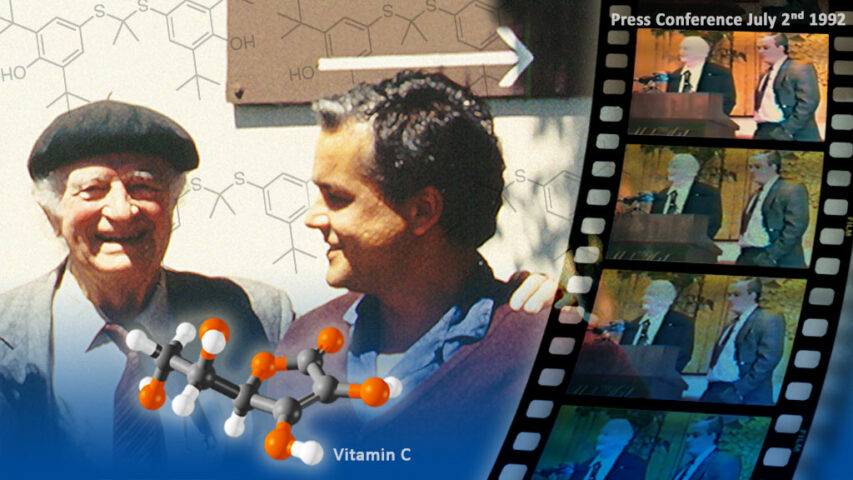- Have any questions? Contact us!
- info@dr-rath-foundation.org

Ugandan Health Ministry Says No Child Will Be Vaccinated Against Covid Without Parental Consent
June 30, 2022
Why Animals Don’t Get Heart Attacks … But People Do!
July 6, 2022Let’s Celebrate ‘World Vitamin Day’

While you might not have realized it, the first vitamins were discovered more than a century ago. Their discovery led to numerous Nobel prizes being awarded in recognition of the essential roles they play in the maintenance of health and prevention of diseases. Hundreds of thousands of scientific studies have since expanded on these findings and proven their lifesaving importance to humanity. And yet, despite the facts about vitamins being documented in the textbooks of biology and biochemistry, the general public remains largely unaware of all this. Our annual designation of July 2nd as ‘World Vitamin Day’ aims to put this right and chart a course towards making an optimum daily intake of these essential micronutrients, and science-based knowledge about them, a human right.
A total of thirteen essential vitamins have now been discovered: vitamin A (retinol), vitamin B1 (thiamine), vitamin B2 (riboflavin), vitamin B3 (niacin), vitamin B5 (pantothenic acid), vitamin B6 (pyridoxine), vitamin B7 (biotin), vitamin B9 (folate), vitamin B12 (cobalamin), vitamin C (ascorbate), vitamin D (calciferol), vitamin E (tocopherols and tocotrienols), and vitamin K (phylloquinone and menaquinones). Some sources include the essential micronutrient choline on this list as a fourteenth vitamin, but there is not yet universal agreement on this. Nevertheless, it is beyond dispute that ensuring an optimum daily supply of vitamins is a crucial factor in the maintenance of health.
Eradicating cardiovascular disease with vitamin C
Among the general public, arguably the best known of the above-listed vitamins is vitamin C. Discovered by Hungarian scientist Albert Szent-Györgyi, who was rewarded with a Nobel prize in 1937, its use as a therapy for fighting the common cold became popularized by two-time Nobel prizewinner Linus Pauling in the 1970s. Pauling went on to become an early proponent for the use of high-dose vitamin C in the treatment of cancer. As important as his pioneering efforts were, however, it was Pauling’s later collaboration with Dr. Matthias Rath on the role of vitamin C in preventing cardiovascular disease that was ultimately to prove transformational.
A series of key scientific papers coauthored with Pauling in the early 1990s outlined Dr. Rath’s revolutionary scientific discovery that the primary cause of cardiovascular disease in humans is a deficiency of vitamin C. As these papers described, ensuring optimum daily intakes of vitamin C can ultimately pave the way towards abolishing human cardiovascular disease as a cause for human mortality.
Building on this groundbreaking work, in a study published in 2015 scientists at the Dr. Rath Research Institute definitively proved that cardiovascular disease is essentially an early form of the vitamin C deficiency disease scurvy. Notably, therefore, in parallel with a growing worldwide awareness of Dr. Rath’s scientific discovery, recent decades have seen a significant decline in cardiovascular mortality. This development opens up the tantalizing possibility that in the years ahead, the eradication of cardiovascular disease – or, at least, its near-eradication – can be achieved.
Reaching this monumental goal for global health is as much a political challenge as it is a scientific one. Reducing the influence of the trillion dollar a year pharmaceutical ‘business with disease’ will be vital. So too will the need to educate open-minded politicians regarding the facts about vitamins and health.
Our designation of July 2nd as ‘World Vitamin Day’ aims to chart a course towards making an optimum daily intake of vitamins, and science-based knowledge about them, available to everyone. Please do support this important campaign and share the #WorldVitaminDay hashtag with your followers on social media.



